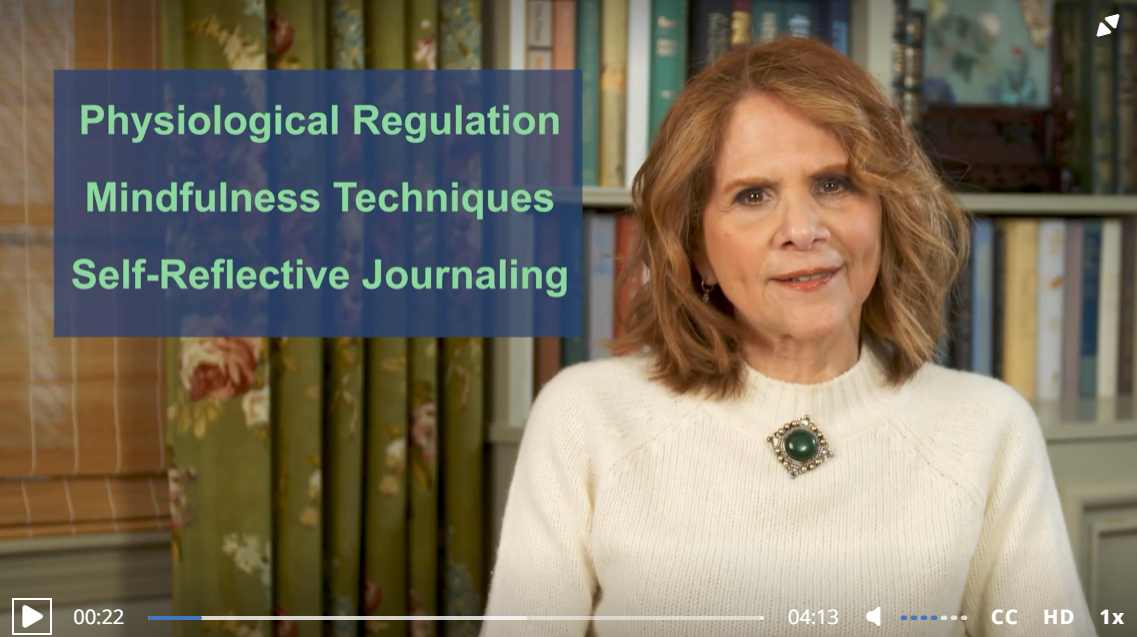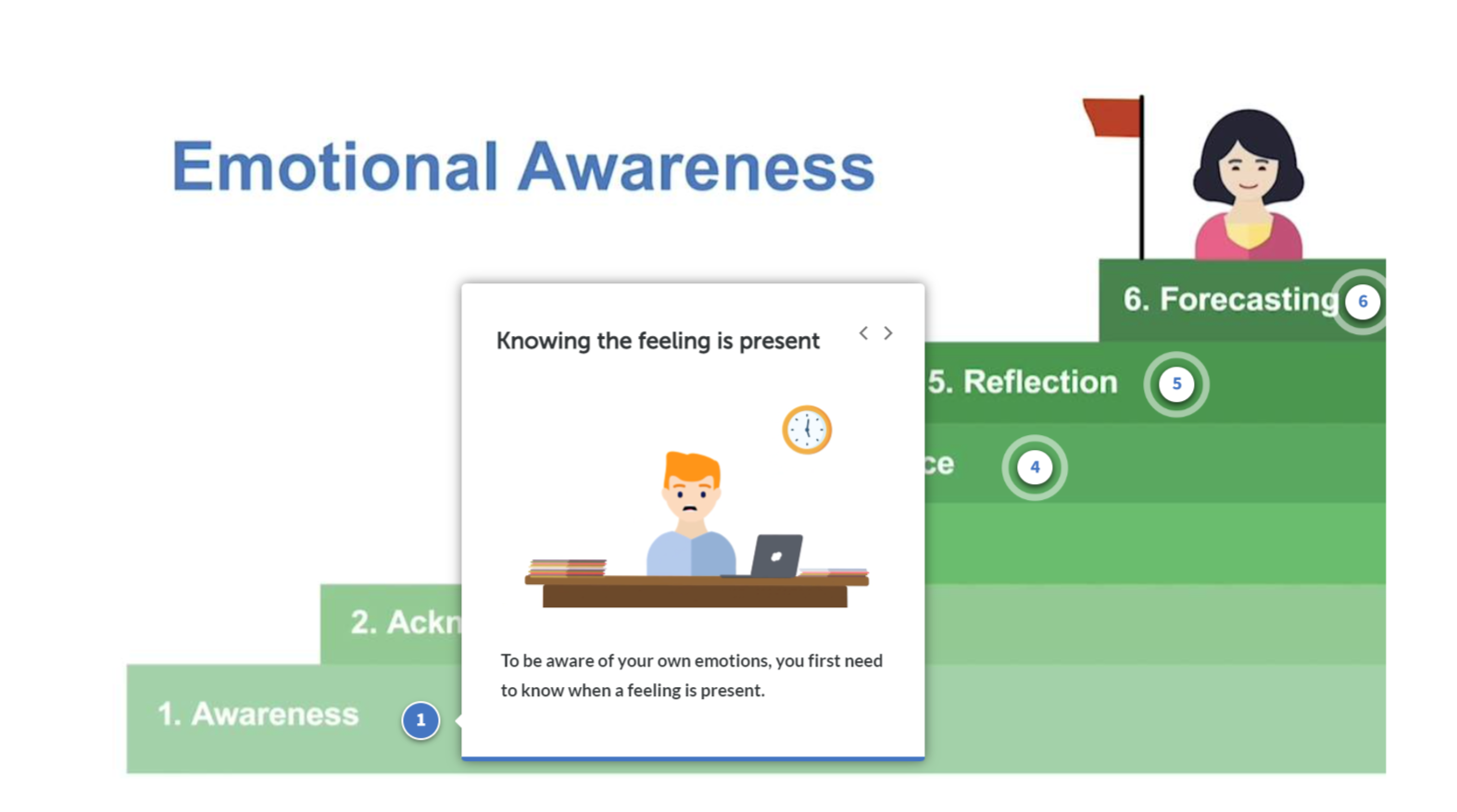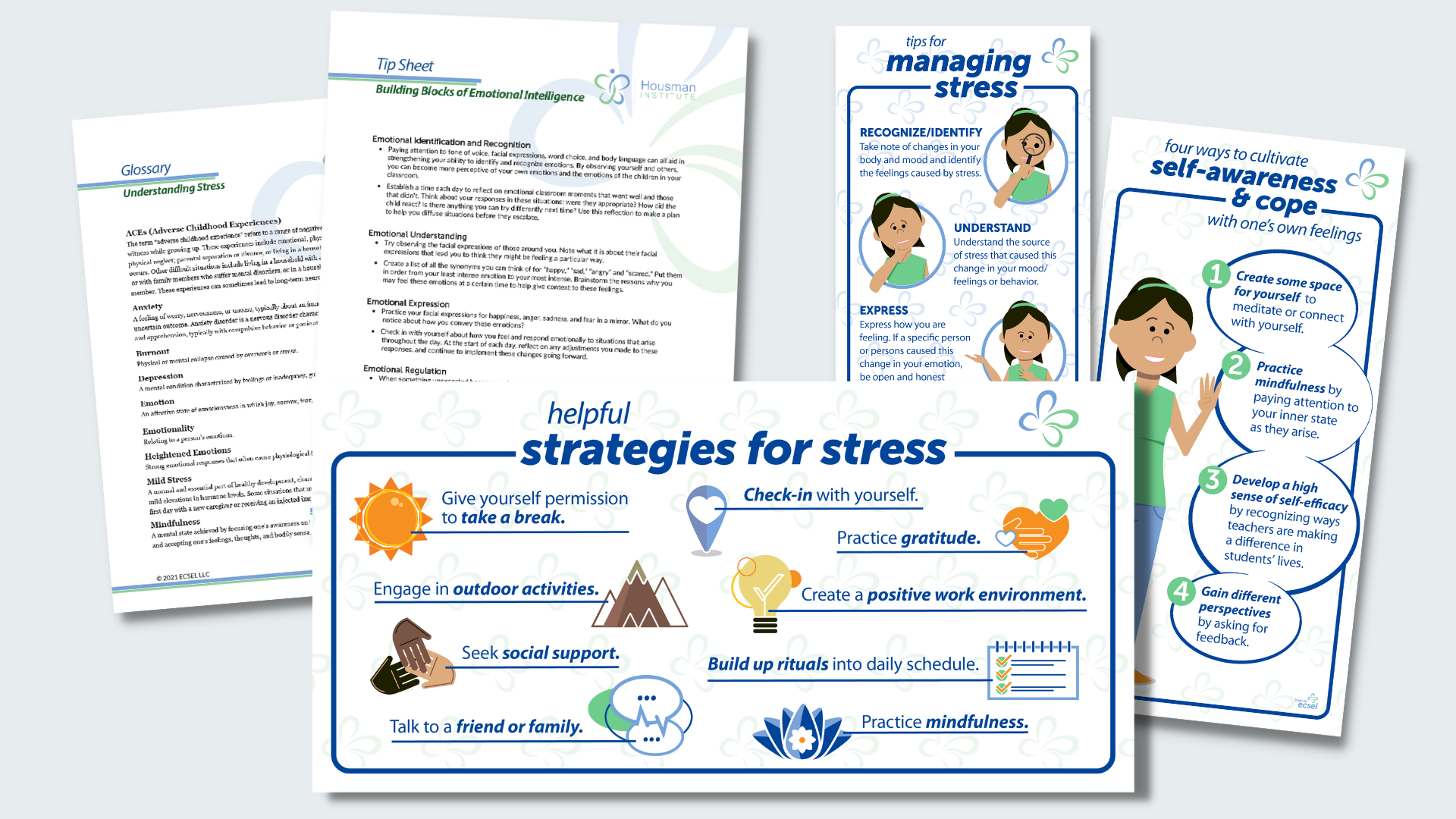Our online professional development training "Educators' Emotional Well-Being" helps individual educators manage personal stress and improve overall mental health.
Educators have the most rewarding, most stressful job. You are charged with shaping the next generation…while balancing lesson planning, chaotic classrooms, communication with families and co-workers, and personal stress.
Why do educators need emotional well-being support?
Children develop through relationships with key adults. As a role model and socializer, you need the tools to manage your own emotions to
When you can regulate your emotions, stay calm, and focused, you're more effective in guiding and facilitating children’s learning.
And we guarantee you’ll enjoy your work more, too.
Helping children manage their emotions starts with understanding ourselves, which is the foundation of healthy relationships and interactions.
Our Educators’ Emotional Well-Being online training is easily through our Housman Learning platform.
Our effective 5-module course allows you to complete each short module on your own time.
It also gives you a glimpse of our larger training program, begin to ECSEL.
Early childhood educators, elementary teachers, instructional specialists, instructional coaches, instructional aides, administrators, and health professionals including school counselors, early intervention practitioners, intervention specialists, clinicians, family and child therapists, SLP, and mental health practitioners.

Across the 5-course program, Dr. Donna Housman will introduce you to the core concepts of emotional intelligence with practical tips.

Each course features opportunities to dive deeper with engaging and interactive activities and real examples, allowing learners to pause, process, and reflect.

Each course provides downloadable and printable resources including infographics, reflective journal templates, glossaries, and more!
Frequently Asked Questions (FAQs)
This program will also provide you with a small glimpse of our larger teacher and mentor training program, begin to ECSEL.
Yes! Housman Institute is an authorized Professional Development provider in MA, VT, and NC. We will provide a course completion certificate along with the course syllabus upon course completion.
This training comprises 5 short courses, and it will take learners approximately 2 hours to complete. For more details, download the syllabus.
The Educators’ Emotional Well-Being program is a fully online eLearning training delivered on our Housman Learning online platform that allows learners to access it anytime anywhere.
If you already have an account, simply log into the Housman Learning platform to access your courses. The Housman Learning platform is currently only accessible to learners who have registered for our online training programs/courses.
Once you complete an order on our Shop for any online training courses/programs, you will receive an email with your login credentials. Please note that if you are doing a team registration (more than 1 seat), you won't be enrolled automatically and you need to submit the roster to our administrator.
Thank you! Now that you have purchased Educators' Emotional Well-being, be sure to add learnersupport@housmanlearning.com to your email address book, and watch for an email from us with additional details. You may need to monitor your spam folder.
If you still have questions, feel free to contact us.
Housman Institute, LLC
831 Beacon Street, Suite 407
Newton, MA 02459
info@housmaninstitute.org
(508)379-3012
Explore
Our Products
Legal
Connect
Contact
Join our Mailing List!
Subscribe to receive our newsletter, latest blogs, and ECSEL resources.
We respect and value your privacy.